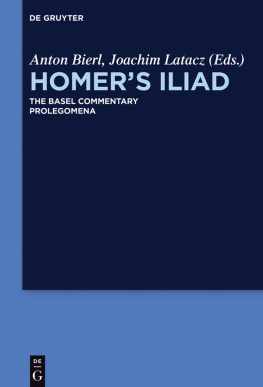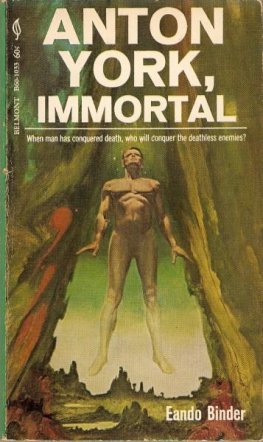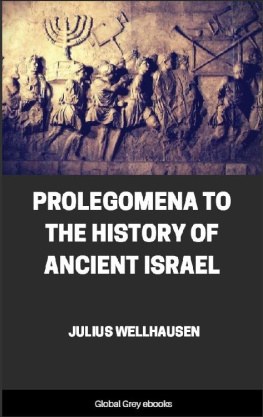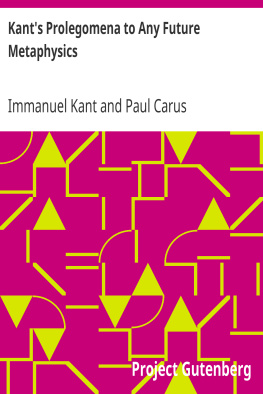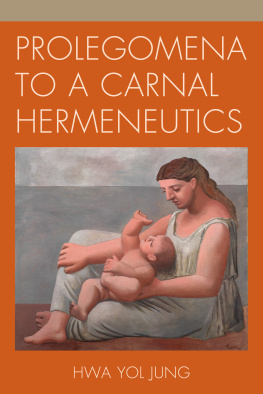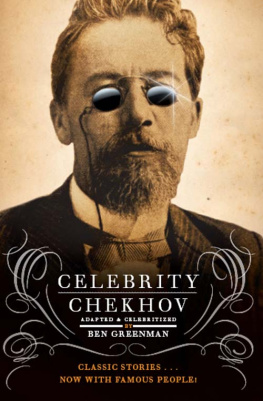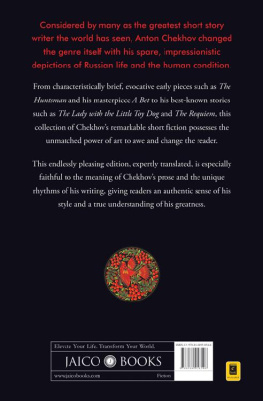Bierl Anton - Prolegomena
Here you can read online Bierl Anton - Prolegomena full text of the book (entire story) in english for free. Download pdf and epub, get meaning, cover and reviews about this ebook. City: Berlin, year: 2015, publisher: De Gruyter, genre: Religion. Description of the work, (preface) as well as reviews are available. Best literature library LitArk.com created for fans of good reading and offers a wide selection of genres:
Romance novel
Science fiction
Adventure
Detective
Science
History
Home and family
Prose
Art
Politics
Computer
Non-fiction
Religion
Business
Children
Humor
Choose a favorite category and find really read worthwhile books. Enjoy immersion in the world of imagination, feel the emotions of the characters or learn something new for yourself, make an fascinating discovery.
- Book:Prolegomena
- Author:
- Publisher:De Gruyter
- Genre:
- Year:2015
- City:Berlin
- Rating:3 / 5
- Favourites:Add to favourites
- Your mark:
- 60
- 1
- 2
- 3
- 4
- 5
Prolegomena: summary, description and annotation
We offer to read an annotation, description, summary or preface (depends on what the author of the book "Prolegomena" wrote himself). If you haven't found the necessary information about the book — write in the comments, we will try to find it.
Prolegomena — read online for free the complete book (whole text) full work
Below is the text of the book, divided by pages. System saving the place of the last page read, allows you to conveniently read the book "Prolegomena" online for free, without having to search again every time where you left off. Put a bookmark, and you can go to the page where you finished reading at any time.
Font size:
Interval:
Bookmark:
Homers Iliad
The Basel Commentary
Homers Iliad
The Basel Commentary
Editors
Anton Bierl and Joachim Latacz
Managing Editor
Magdalene Stoevesandt
General Editor of the English Edition
S. Douglas Olson

The publication of Homers Iliad: The Basel Commentary has been made possible
by the kind financial support from the following organizations:
Stavros Niarchos Foundation
Freiwillige Akademische Gesellschaft (FAG), Basel
L. & Th. La Roche-Stiftung, Basel
ISBN 978-1-61451-737-5
e-ISBN (PDF) 978-1-5015-0174-6
e-ISBN (EPUB) 978-1-5015-0182-1
Library of Congress Cataloging-in-Publication Data
A CIP catalog record for this book has been applied for at the Library of Congress.
Bibliographic information published by the Deutsche Nationalbibliothek
The Deutsche Nationalbibliothek lists this publication in the Deutsche Nationalbibliografie;
detailed bibliographic data are available in the Internet at http://dnb.dnb.de
2015 Walter de Gruyter Inc., Berlin/Boston
Typesetting: Dorlemann Satz GmbH & Co. KG, Lemfrde
www.degruyter.com
The commentary commencing with this volume is meant not only to serve as a tool for professional scholars of classical antiquity, but also to make the earliest preserved major text of European literature somewhat more accessible to literary scholars and students of all disciplines, as well as to others interested in literary studies. Homers era is removed from ours by about 2700 years. In human history, these approximately 80 generations are a mere blink of the eye. But given the structural social and cultural changes from Greece via Rome, Byzantium and the modern European national states, an adequate, spontaneous comprehension of this kind of poem cannot be taken for granted today. An important subsidiary goal of this project is thus to mitigate the impression of foreignness or even inaccessibility common among non-specialists. This is based on the hope that the commentary will contribute to integrating Homer anew, or at least in a new light, into our societys cultural memory.
The structure of organization and the internal composition are described in detail in the Introduction (see COM 36-43). The work as a whole is composed of three parts: (1) the Prolegomena volume, (2) the text/translation volumes, and (3) the commentary volumes (line-by-line commentary). These three parts interlock and form a tripartite unity.
The present Prolegomena volume forms the basis of the commentary and serves to relieve it of repetitiveness. As detailed below (COM 40), it would have been uneconomical and tiresome to discuss indispensable basic information anew at every relevant point. Instead, the most important data regarding the history of Homer commentaries, the history of the text, formularity and orality, Homeric grammar, meter, the structure of the poem, Homeric poetics, the characters in the action (subdivided between gods and humans, and supplemented with an alphabetic index of characters), and the connections between Homeric and Mycenaean vocabulary, are summarized in ten blocks of information. These blocks are designated by abbreviations (G = grammar, M = meter, etc.) and are organized by paragraph or (where more appropriate) alphabetized. In the line-by- line commentary, reference is made to these blocks by abbreviation + paragraph number (G 25, M 10, etc.) wherever a more detailed or systematic explanation appeared necessary or useful.
The central topics for a primarily philological commentary on the Iliad are largely covered by the ten blocks of information, Here, the notes in Commenting on Homer (COM) and History of the text (HT) may provide some temporary compensation.
The editor and authors have attempted to present the relevant results of Homeric scholarship in accord with the current state of knowledge. Over the course of the last approximately 100 years, Homeric scholarship has not only become international to an unexpected degree (active researchers today reside in about 45 countries), but has also become specialized to such an extent that an overview of the total output has been impossible for some time. Not to attempt this, however, would not only contradict the academic ethos, but would also miss the main goal of any commentary, which is to aid the advance of knowledge by collating what has been achieved to date. Accordingly, every attempt has been made to approach this ideal as closely as possible. The editor and authors are grateful for comments and amendments, even more so since an update of the current Prolegomena volume, after a reasonable span of time, is part of the project plan.
The blocks of information are offered in diction as generally comprehensible as possible, with the exception of G and MYC, where prior knowledge is indispensable; a renewed interest in Homer will not be aroused by the use of insider jargon. As for content, on the other hand, every effort has been made to serve even experts as well as possible, particularly by means of information offered in footnotes and abundant bibliographical references. The needs of this second group of users are further addressed through innovations such as the extensive Homeric grammar, specially developed for this volume by Rudolf Wachter, and the narratological premiere of a Homeric poetics in keywords by Rene Nunlist and Irene de Jong. A further innovation can be found in the Mycenaean index by
Rudolf Wachter, similarly formulated specifically for this volume, which for the first time illustrates via concrete examples the breadth and depth of the current linking the Mycenaean period of Greek history linguistically with the Homeric period approximately 700-450 years later. The extensive collation and explanation of all characters featured in the Iliad (deities, humans, peoples) in two types of survey (Cast of characters and Character Index) by Fritz Graf and Magdalene Stoevesandt will likely be welcomed not only by friends of literature but by professional Homeric scholars as well, for whom the previously available lists of this kind, generally incomplete and inaccurate, have long been a source of annoyance. The History of the text by Martin West converts the tremendous command of the material exhibited by the latest editor of the text of the Iliad (in the Biblio- theca scriptorum Graecorum et Romanorum Teubneriana) into a masterful yet readable overview.
Every information block draws on the entire Iliad for attestations, and frequently also on the Odyssey, the works of Hesiod and the Homeric hymns. The Prolegomena volume thus emerges as a reference work meant to serve as a companion volume for the duration of the commentary project. It is hoped that the enormous expenditure of time required to compose it will be rewarded by a similarly long life for its contents.
*
Completion of this volume was only possible thanks to the collaboration, energy and perseverance of all those involved, especially the permanent associates of the project in Basel, Rene Nunlist, Magdalene Stoevesandt and Claude Brugger, at different times diligently supported by student assistants. Much patience, tolerance and commitment, often approaching the limits of human endurance, has been asked from the permanent associates in particular. Special thanks are due the authors, both project staff and external associates, for their endless readiness to cooperate, which has found its most efficient expression in repeated mutual reading and subsequent revision of manuscripts. The administration of the University of Basel has generously and actively supported the project from the very beginning, making spacious premises available for it and providing indispensable electronic infrastructure. The Basel university library and its staff are due thanks for their regular, engaged support in the procurement of academic literature. We thank the Freiwilligen Akademischen Gesellschaft Basel (FAG) for a significant contribution toward the cost of books. In a field as intensively worked as Homeric studies, the overview of printed output and the task of remaining up to date present particular challenges; here we are indebted to Prof. Dr. Frangoise Letoublon for providing us with current information from her Homeric research center in Grenoble, and especially for sending us the extremely helpful current bibliographies on Homer compiled by Dr. Martin Steinrck.
Next pageFont size:
Interval:
Bookmark:
Similar books «Prolegomena»
Look at similar books to Prolegomena. We have selected literature similar in name and meaning in the hope of providing readers with more options to find new, interesting, not yet read works.
Discussion, reviews of the book Prolegomena and just readers' own opinions. Leave your comments, write what you think about the work, its meaning or the main characters. Specify what exactly you liked and what you didn't like, and why you think so.

